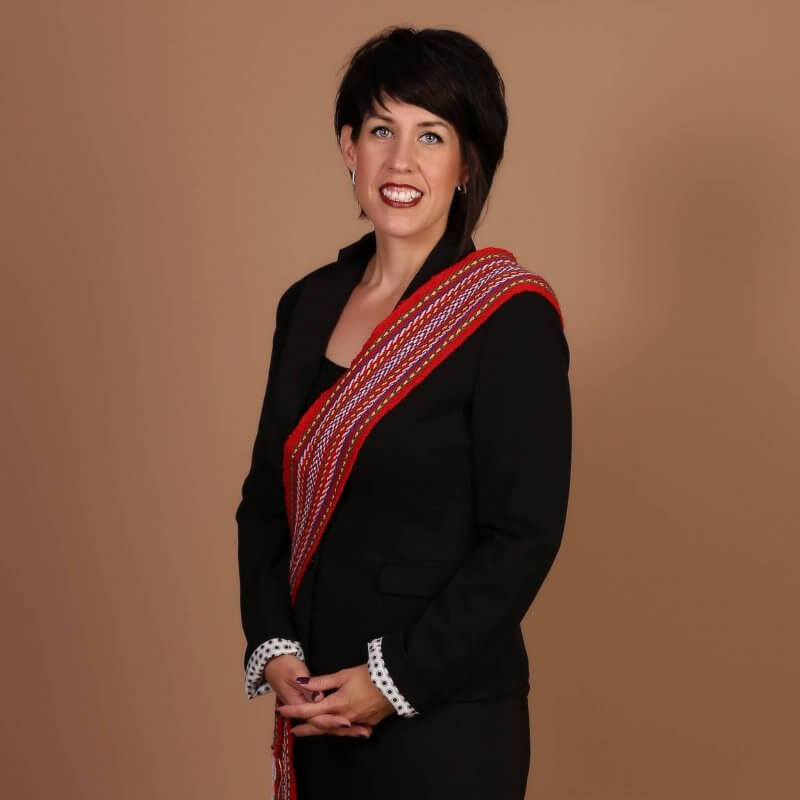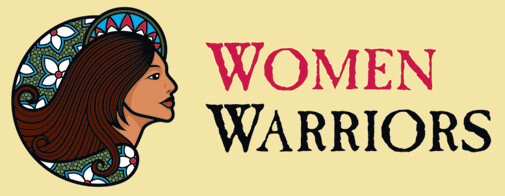AU student taking Indigenous women’s health research project to Yellowknife
Shelley Wiart sees first-hand how Athabasca University can transform lives and transform communities.

The fourth-year bachelor of arts student knew an Athabasca University degree would help give her the opportunity to do health research, but she didn’t necessarily know it would happen as quickly as it did—or that she could be paid for it.
“This is amazing to be an undergrad student researcher and already get paid to do health research. This has been my longtime dream,” she said.
Earlier this year Wiart was awarded a $6,000 undergraduate student summer stipend from the Alberta Indigenous Mentorship in Health Innovation network for a project focused on digital storytelling, allowing Indigenous women to frame their own stories about their experiences with their health.
“The purpose is to try to bridge the gap between Western biomedical models and Indigenous healing. It’s an important way for them to frame their own narratives,” she said.
This summer Wiart, who is a member of the North Slave Métis Alliance from Yellowknife, will conduct research with Indigenous women in Yellowknife, to help women tell their stories. And perhaps more importantly, she hopes her work will help to build capacity within those communities to continue telling their important stories through digital media.
“Indigenous people naturally gravitate to storytelling; that’s how we learn,” she said. “That’s how elders teach, is through stories, and this is going to be a great opportunity for them to put their storytelling to use.”
Women Warriors

Wiart is not exactly a health-research newbie, either. While earning her bachelor of arts in sociology, with a minor in women and gender studies, she has also co-founded Women Warriors with University of Calgary professor Dr. Sonja Wicklum. The 8-12 Weeks to Healthy Living program is dedicated to removing barriers for Indigenous women to be physically active and eat well—and creating an environment of support so participants can learn to manage those barriers.
With two locations in Alberta, one on Onion Lake Cree Nation and another in Calgary, she has also been able to explore some of the differences in women’s experiences with their health, as well as the different challenges in different contexts.
“I can tell women in Indigenous communities they need to eat 4.5 cups of fruits and vegetables a day, but that doesn’t do them any good unless they have access to those things,” she said.
Wiart also sees her work with Women Warriors as a smaller piece of a bigger picture of reconciliation in her own community. In Onion Lake, for example, she runs many of the health and fitness programs with support from instructor from Lloydminster, helping to bridge the gap between settler and Indigenous culture.
The connection between personal health and community or cultural health isn’t lost on her. It’s a topic she explores quite extensively in her blog entries on the Women Warriors website.
“Indigenous women’s bodies and health are political,” she said. “It has a lot to do with the social determinants of health.”
Flexibility to learn
When Wiart decided to pursue a university education—in the midst of raising three young children and all her community development work—she said Athabasca University was the natural choice.
“AU has been an amazing experience for me,” she said. “I live in kind of a rural community where there’s no university. I’m in my last year of my BA, and this was one of the only ways I could do it, through Athabasca.”
What’s more, Athabasca University’s flexibility opened up lots of options for who would supervise Wiart’s summer research project. It was important to her to have an Indigenous supervisor for her project, which focuses on the Indigenous experience, but there weren’t any Indigenous professors in the department of women and gender studies, so she looked further afield.
“They actually allowed me to use a professor from anthropology, Dr. Janelle Baker,” she said. “She is Métis and has worked a lot with First Nations, even at Onion Lake.”
Another way AU has helped Wiart achieve her goals and excel in her work is via the Writer in Residence program. After a difficult time in her personal life she wrote a great deal of poetry, and was encouraged to submit it for the Kemosa Scholarship for Indigenous writers through the Alberta Writer’s Guild.
“When I saw that the writer in residence was Katherena Vermette I immediately pulled everything together into a document for her, to get her to look at my poetry for me,” she said. “She did, and it was a wonderful experience. She was really encouraging and she had a lot of great insights—obviously, since she’s a professional poet.”
Having the opportunity to connect with Indigenous resources and work with Indigenous scholars is something Wiart said is very important to her, especially as she turns her attentions to the health research, she hopes can help transform her own home community in the Northwest Territories.
“As a Métis woman, it’s so important for me to be able to conduct research on my traditional homelands of the North Slave Métis people,” she said. “And I might not have this opportunity if not for Athabasca University.”
Wiart is a recipient of the Researcher Capacity Development Award funded by Hotıì ts’eeda, the NWT Strategic Patient Oriented Research (SPOR) SUPPORT Unit, funded by the Canadian Institutes of Health Research and governed by NWT Indigenous and public governments. It is hosted by the Tłıc̨hǫ Government and means “working together for good health” in the Tłıc̨hǫ language. Hotıì ts’eeda supports and facilitates NWT health research with a focus on Indigenous methodologies, community engagement and mobilizing best practices.